STEM Education Excellence for a 21st Century Workforce
Structured around the theme of “STEM Education Excellence for a 21st Century Workforce,” this year’s Texas Regional Collaboratives for Excellence in Science and Mathematics Teaching (TRC) Annual Meeting was held June 29 - July 1, 2010, and celebrated the power of collaboration as we offer quality STEM professional development to teachers around the state.
Sixteenth Annual Meeting Highlights (PDF)
 Download the Fifteenth Annual Meeting Highlights brochure. This PDF covers the highlights of the conference, including our special guests, awards, and the agenda
Download the Fifteenth Annual Meeting Highlights brochure. This PDF covers the highlights of the conference, including our special guests, awards, and the agenda
Sixteenth Annual Meeting Photo Gallery
 Visit the Sixteenth Annual Meeting Photo Gallery to explore hundreds of images from the conference. If you find an image you would like to print or download, hover your mouse over the right hand side of a selected image and choose Save Photo. While you can order the print via the gallery, you may find it more economical to download and print locally.
Visit the Sixteenth Annual Meeting Photo Gallery to explore hundreds of images from the conference. If you find an image you would like to print or download, hover your mouse over the right hand side of a selected image and choose Save Photo. While you can order the print via the gallery, you may find it more economical to download and print locally.
Sixteenth Annual Meeting Video Library
 Visit the Sixteenth Annual Meeting Video Library to review video clips from the June 29, 2010 Dinner as well as the July 1 closing luncheon. Featured is the complete keynote delivered by The Honorable Mark Strama - Chair, Technology, Economic Development, and Workforce Committee Texas House of Representatives. Watching these clips requires a high bandwidth connection. You may have to wait a minute or two for the video to start playing if you are on a slow Internet connection.
Visit the Sixteenth Annual Meeting Video Library to review video clips from the June 29, 2010 Dinner as well as the July 1 closing luncheon. Featured is the complete keynote delivered by The Honorable Mark Strama - Chair, Technology, Economic Development, and Workforce Committee Texas House of Representatives. Watching these clips requires a high bandwidth connection. You may have to wait a minute or two for the video to start playing if you are on a slow Internet connection.
TOLC Discussion Area for the Sixteenth Annual Meeting
 We have invited all session leaders from the Sixteenth Annual Meeting to share their presentation materials and moderate followup discussion within a TOLC Special Interest group created for this purpose. To access this TOLC resource you must be a member. Everyone who registered for the conference should get an invitation to join TOLC and the special interest group. If you are not a TOLC member and would like to be invited, send an email to Keith Mitchell requesting an invitation. Be sure to explore the entire online community and be an active contributor. Each member has their own professional journal. You can also share professional development realted images, video, and events within the community.
We have invited all session leaders from the Sixteenth Annual Meeting to share their presentation materials and moderate followup discussion within a TOLC Special Interest group created for this purpose. To access this TOLC resource you must be a member. Everyone who registered for the conference should get an invitation to join TOLC and the special interest group. If you are not a TOLC member and would like to be invited, send an email to Keith Mitchell requesting an invitation. Be sure to explore the entire online community and be an active contributor. Each member has their own professional journal. You can also share professional development realted images, video, and events within the community.
Keynote Address
21st Century Education
The Honorable Mark Strama
Chair, Technology, Economic Development, and Workforce Committee
Texas House of RepresentativesBio: Mark Strama began his political career working on Ann Richards’ successful campaign for governor in 1990 and went on to become chief of staff for State Senator Rodney Ellis.
In 1995, he left government to become director of programs at Rock the Vote, where he helped register more than a million new voters. Soon after, he founded the first company to register voters online, which helped empower over 700,000 Americans to vote in the 2000 election cycle.
In 2004, Mark campaigned for state representative in an attempt to return to politics and won by just a few hundred votes. Two years later he was re-elected with an overwhelming majority. His campaigns have earned national attention because of his effectiveness in registering voters and mobilizing young activists.
This past session, Mark's third, he served as the Chairman of the Technology, Economic Development, and Workforce Committee and as a member of the Energy Resources Committee. He has fervently supported legislation in support of renewable energy and education, and hopes to continue being a leader on these issues in the years to come.
The Conference Schedule
The conference schedule included many general sessions featuring guest presenters and even more breakout sessions in which Collaborative members shared hands-on professional development content. In our general sessions teachers were recognized for teaching and mentoring excellence. Collaboratives shared their successes in the Exhibit Showcase. You can now download the detailed pre-conference agenda in PDF format.
General Sessions
Featured Breakout Sessions
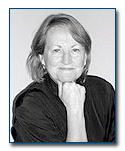
UBeats: BioMusic Curriculum for Elementary Grades
Patricia Gray
UBEATS:
Universal BioMusic Education Achievement Tier in Science is a 3 year curriculum
development project that focuses on the ‚"science of music‚" for elementary
grades 2 to 5. Two teams of in-service teachers comprised of science teachers
and music teachers developed innovative modules for upper and lower elementary
grades that conform to national science and music standards. The lessons feature inquiry-based
learning that builds science-processing skills through investigations of the
natural world’s musicality. UNC-Greensboro hosts a UBEATS Summer Institute
for teachers in elementary grades and 25 students to introduce the curriculum
and to launch a UBEATS Teacher Cohorts in North Carolina to beta-test the
curriculum. Virtual Mentors include: Roger Payne (whale songs) Ocean Alliance;
Steve Nowicki (bird songs) Duke University; Don Hodges (music/brain) UNCG; and
Doug Quin (bioacoustics) Syracuse University; Tecumseh Fitch (animal
communication), U of Vienna.
Bio: Patricia Gray (click for BioMusic web site) holds degrees from the Oberlin Conservatory (BM), the University of Wisconsin/ Madison (MM), and from the Cincinnati College-Conservatory of Music (DMA). She is the Artistic Director and Pianist of National Musical Arts (NMA), for 21 seasons the resident ensemble at the National Academy of Sciences in Washington DC, and the founder and Director of NMA's BioMusic Program. As pianist, she has performed at The White House, is the recipient of the prestigious Franz Liszt Commemorative Medal from the government of Hungary, a soloist with leading orchestras, and has collaborated in performances with renowned composers and performers. As Director of NMA's BioMusic Program, Dr. Gray leads a team of distinguished scientists and musicians that explores the musical sounds in all species.
336-256-1479 or email: [email protected]
21st Century Careers Panel Discussions:
Preparing Students for Their Future, Not Our Past
Many of the careers our students will be entering into don’t even exist today. Are we doing what is necessary to prepare our students for their future rather than our past? What are some of the emerging fields about which teachers need to be aware? What are the post-secondary routes to certification or degrees for entry into these fields? What are the skills students need to successfully compete for jobs in these areas? How can K-12 educators prepare students for these fields? All these questions and more were answered in interactive panel discussions with experts in each of these fields.
Digital/Creative Media Panel Discussants
- Dr. Tim McLaughlin
Associate Professor and Department Head
Department of Visualization
Texas A&M University - Dr. Leslie Miller
Executive Director, Center for Technology in Teaching and Learning
Rice University Center for Technology in Teaching and Learning - Mr. Stephan Samuelson
President & CEO Twist Education - Mr. Spencer Zuzolo
President 3DSquared
Green Tech Panel Discussants
- Dr. Hector Aguilar
Executive Dean Continuing Education
Austin Community College District - Stacy Dukes-Rhone
Executive Director
BiGAustin - Cliff Zintgraff
CEO DaVinci Minds
Professional Development Sessions
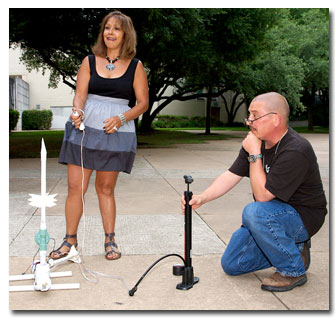 The Annual Meeting
showcases outstanding science and mathematics instruction techniques and
lessons. It features breakout sessions, hands-on workshops presented by
teachers to teachers, and offers professional development credits.
Exceptional science and mathematics teachers and teacher mentors were
honored for their achievement and dedication to the Collaboratives.
The Annual Meeting
showcases outstanding science and mathematics instruction techniques and
lessons. It features breakout sessions, hands-on workshops presented by
teachers to teachers, and offers professional development credits.
Exceptional science and mathematics teachers and teacher mentors were
honored for their achievement and dedication to the Collaboratives.
Showcase of Exhibits
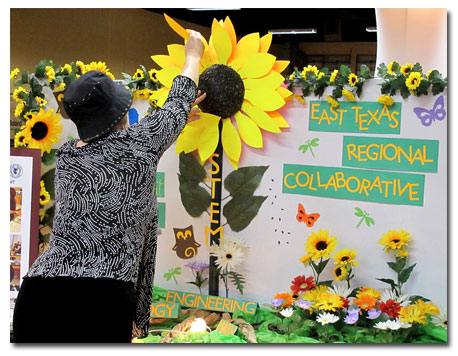
Guests had an opportunity to view a showcase of exhibits
designed by representatives from the Science and Mathematics Collaboratives. Collaboratives shared innovative
professional development programs and effective practices with each
other.


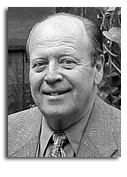 Successful research-based strategies for closing student achievement gaps exist not only in science, but also in literacy and mathematics. Dr. Michael Klentschy speaks to the advantages of hands-on inquiry supported by literacy strategies versus a text-only approach to science instruction. He specifically emphasizes strategies related to the science-literacy connection—the use and application of writing in science through science notebooks, language-acquisition strategies for English
Successful research-based strategies for closing student achievement gaps exist not only in science, but also in literacy and mathematics. Dr. Michael Klentschy speaks to the advantages of hands-on inquiry supported by literacy strategies versus a text-only approach to science instruction. He specifically emphasizes strategies related to the science-literacy connection—the use and application of writing in science through science notebooks, language-acquisition strategies for English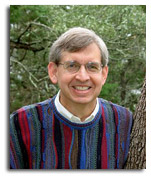
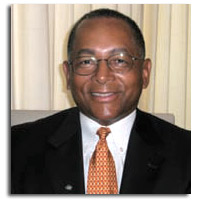 Kenneth Wesson
Kenneth Wesson 
